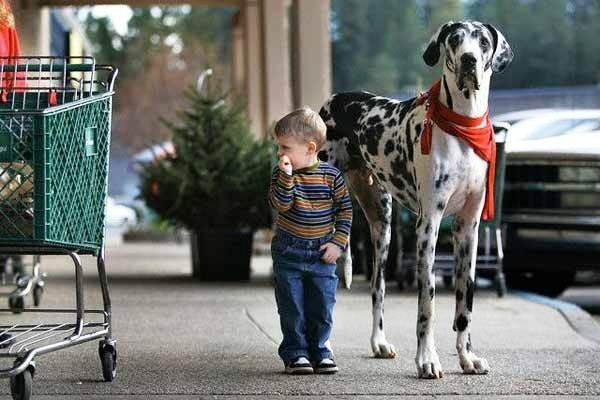Welcome to our weekly 'Ask a Vet from the SF SPCA' feature on 7x7.com. Dr.Jeannine Berger, DVM, DACVB is a board certified veterinary behaviorist who counsels guardians whose pets’ issues are beyond the scope of training. Think of her as a pet shrink…at your service. Ask your own questions in the comments!
It is great when kids can grow up with dogs. This is great socialization for both youngsters and leads to wonderful lifetime memories. However, when two species meet for the first time, there have to be some ground rules. Here are some suggestions for a safe, rewarding relationship between kids and dogs.
Supervise, Supervise, Supervise: The success of dog-child relationships depends on consistent parental supervision, management, and the modeling of appropriate interactions and humane training methods. Each dog is different. Good family dogs are friendly and social, both with people and other animals, and enjoy being handled by adults and children. Avoid dogs with any form of aggression toward people or dogs.
Start Gently: The movement, noise, and activity of an excited kid may overwhelm or scare a dog. Balance your child’s enthusiasm when meeting and greeting a dog, and keep in mind how it could be perceived by the dog– especially with shy or fearful dogs.
In regards to unfamiliar dogs, always ask the owner if it is ok to meet and greet the dog. Ask the owner if the dog has a command such as sit, for example–then your child can ask the dog to sit before he's approached. This makes most dogs more comfortable. Don’t allow children to approach any unattended dog, a dog in his crate or sleeping area.
Make It Fun: Involve the dog in dog play by instructing, modeling, and supervising appropriate play, such as Fetch and Frisbee. Use positive interactions such as obedience or dog tricks. Avoid over-stimulation in both dog and child.
Keep It Safe: Do not allow wrestling, ear pulling, pony rides, fur grabbing, rough play, or teasing. These types of games teach your child inappropriate and unsafe interactions with dogs. Every dog has his limits and may bite under certain circumstances, so strict supervision and management is a must.
Be A Good Role Model: Be sure to notice and reward the dog’s good behavior with praise, food treats, or other rewards. Never use physical punishment (hit, kick or shake your dog) for misbehavior or aggression. These methods are dangerous and teach children an incorrect way to solve problems.
Related Articles
